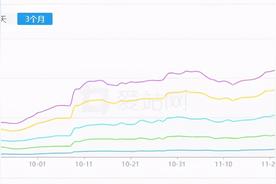
Search Engine Optimization (SEO) tools have become increasingly important for businesses to improve their online visibility, attract more users, and ultimately achieve higher conversion rates. In the health and fitness mobile gaming and apps industry, user-centric design is crucial to ensure that products are engaging, intuitive, and effective in helping users achieve their health and fitness goals. By integrating advanced SEO tools into the development process, companies can create more user-friendly and search engine friendly applications, leading to increased visibility, downloads, and user satisfaction.
1、Keyword Research and Analysis
Keyword research is the foundation of any successful SEO strategy. By identifying relevant keywords and phrases related to health and fitness mobile gaming and apps, developers can optimize their content, metadata, and overall app structure to rank higher in search engine results pages (SERPs). This will help potential users find the app more easily when searching for related topics.
2、On-Page SEO
On-page SEO involves optimizing various elements within the app itself, such as title tags, meta descriptions, headings, images, and content. By incorporating relevant keywords and providing clear, concise information about the app's features and benefits, users are more likely to engage with the app and find it valuable. Additionally, optimizing image alt tags and using descriptive file names can improve accessibility and search engine rankings.
3、Technical SEO
Technical SEO focuses on optimizing the app's technical aspects, such as site speed, mobile-friendliness, and indexing. Ensuring that the app loads quickly and functions smoothly on both desktop and mobile devices will improve user experience and reduce bounce rates. Furthermore, implementing structured data markup and ensuring proper indexing will help search engines better understand the app's content and context, leading to improved rankings.
4、Content Marketing
Content marketing involves creating high-quality, engaging content related to health and fitness mobile gaming and apps, such as blog posts, articles, videos, and infographics. By sharing this content on social media, forums, and other online platforms, companies can attract more users and establish themselves as experts in the industry. Additionally, linking to relevant content within the app can improve user engagement and provide additional value to users.
5、User Reviews and Ratings
Encouraging users to leave reviews and ratings on app stores and other online platforms can help improve the app's visibility and reputation. Positive reviews and high ratings signal to potential users that the app is trusted and valued by its current user base. Furthermore, responding to user feedback and addressing any concerns or issues can demonstrate a commitment to user satisfaction and foster a sense of community around the app.
6、Social Media Engagement
Social media platforms provide an excellent opportunity for companies to connect with potential users, share valuable content, and promote their app. By actively engaging with followers, responding to comments and messages, and sharing user-generated content, companies can build a strong online presence and increase user loyalty. Additionally, running targeted social media ads can help reach new audiences and drive more downloads.
7、Influencer Marketing
Collaborating with influencers in the health and fitness industry can help increase brand awareness, credibility, and user trust. By partnering with influencers who align with the app's values and target audience, companies can leverage their follower base to promote the app and encourage downloads. Influencers can also provide valuable feedback on the app's design and functionality, leading to further improvements and enhancements.
8、Analytics and Reporting
Monitoring analytics data, such as user engagement, retention rates, and conversion rates, can provide insights into how well the app is performing and where improvements can be made. By regularly analyzing this data and reporting on key performance indicators (KPIs), companies can make data-driven decisions to optimize the app's user-centric design and ensure ongoing success in the competitive health and fitness mobile gaming and apps market.
In conclusion, integrating advanced SEO tools into the development process of health and fitness mobile gaming and apps can significantly enhance user-centric design, leading to increased visibility, user engagement, and overall success. By focusing on keyword research, on-page SEO, technical SEO, content marketing, user reviews and ratings, social media engagement, influencer marketing, and analytics reporting, companies can create more user-friendly and search engine friendly applications that meet the needs and preferences of their target audience.
评论列表 (0条)